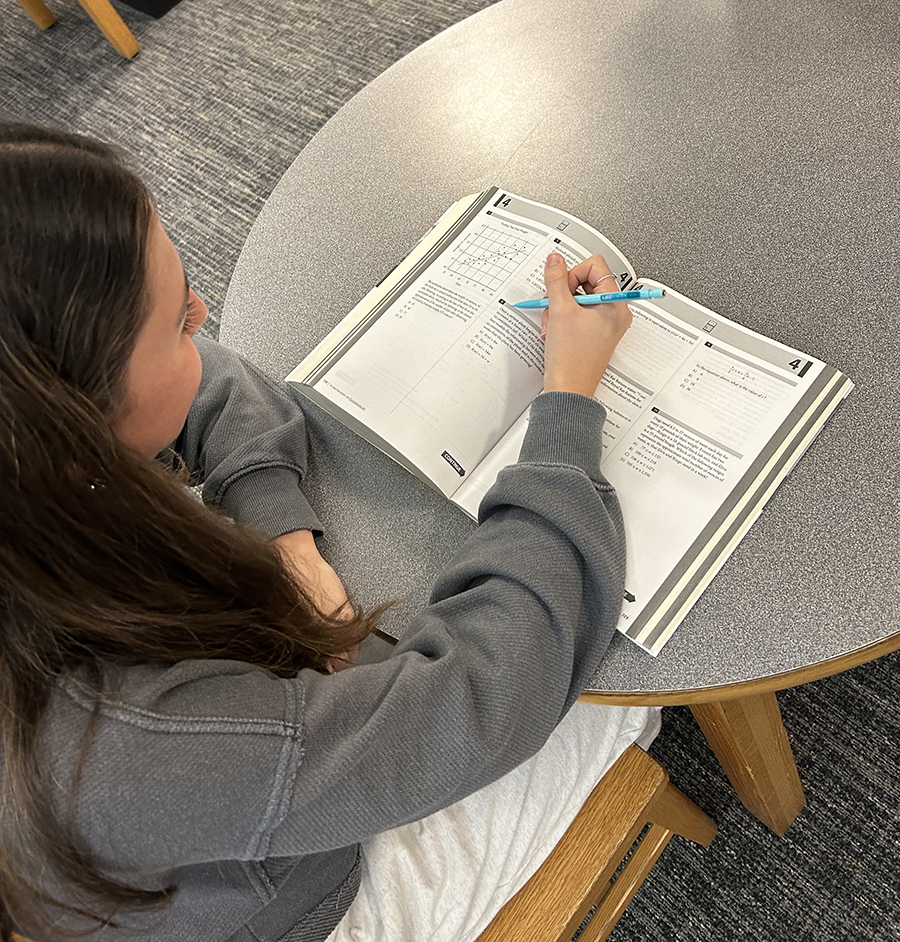At the height of the pandemic in 2020, over 625 colleges and universities switched to test-optional admissions, meaning they no longer not required standardized test scores such as the ACT or SAT. The shift in practice even included most of the Ivy League schools, but now many of these same institutions are again requiring test scores as a part of a student’s application.
The colleges and universities who have reverted back to requiring test scores have done so for a variety of reasons.
“I think some believed [going test-optional] was a temporary measure in response to applicants not being able to sit for an exam at the onset of the pandemic,” guidance counselor Christopher Shanahan said. “Additionally, with applicants coming from all over the world and from all types of institutions, standardized test scores are one of the few objective data points by which to compare applicants.”
Test-optional policies also typically inflate the average test scores of many colleges as students who have higher scores are more likely to submit theirs than those with lower scores, creating a false “average” of only some students’ results. With test-required policies returning, some hope that students won’t feel so intimidated by the inflated score averages.
“Test scores are definitely one of the first statistics people look at when thinking of applying to a school,” junior Solana Varela said. “In my opinion, requiring tests again will make the average scores at many schools lower, so this stress should be lowered as well.”
Other seniors feel that this return to mandatory test scores will help their chances of being admitted to the college of their choice.
“I am actually supportive of schools requiring [scores],” senior Alex Jylkka said. “It’s nice to have my scores considered because I put a lot of time into getting a good ACT score, and it’s better for schools to have more information about applicants.
Many students see benefits, however, of colleges not requiring ACT or SAT scores such as avoiding the stress of testing itself.
“I think having schools be test-optional puts less stress on me as a student,” Varela said. “I feel like they are not a completely accurate representation of a student’s capabilities, and there are other aspects of an application that better reflect the student.”
For many at WHS, the shifting policies have made no real difference to their college admissions process.
“It doesn’t affect me and I don’t think it affects many others,” Whitworth said. “I am going to take the SAT anyway and want to be able to submit my score regardless of the policy.”
Despite the potential of increased stress for students who feel they have to take a test to maximize their options, in reality there are other crucial factors that affect college admissions.
“It is important to remember test scores are but one bit of information used by admissions offices to evaluate an application,” Shanahan said.
As the SAT and ACT are both experiencing format changes, students look to approach the tests differently.
“It’s actually a good thing that both the SAT and ACT are changing while tests are becoming required again,” Whitworth said. “Both of them are going to pressure test takers less with their new format being online for the SAT and not requiring the science section of the ACT.”
In the end, while seven out of the eight Ivy League schools have already returned or plan on returning to test-required, there are many colleges and universities that will not be doing so.
“Many colleges are opting to remain test optional because they have looked at the data and determined that standardized testing does not significantly enhance their ability to make an appropriate admissions decision,” Shanahan said.
Some seniors who have already gone through the testing process have advice for standardized test takers in the future.
“Stressing over the ACT or SAT definitely makes it harder to succeed,” Jylkka said. “Don’t wait too long to study and make sure that you feel confident before taking the test.”





